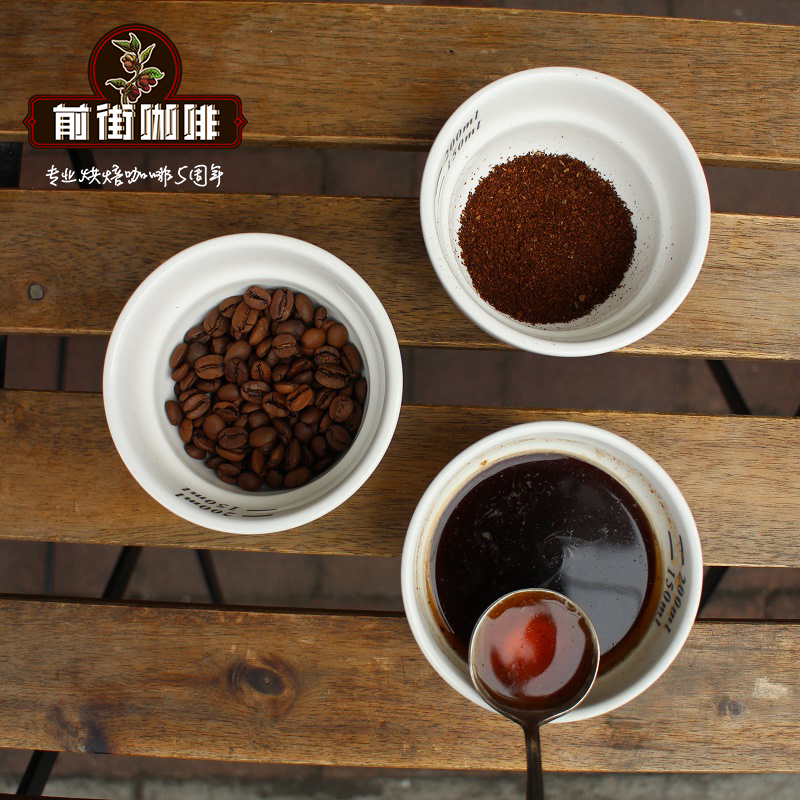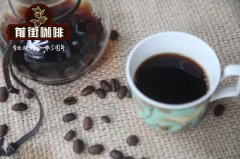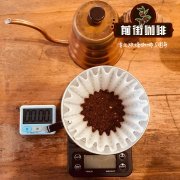Introduction to the types of coffee beans in Bali. Why should you never buy coffee in Bali?

Professional coffee knowledge exchange more coffee bean information please follow the coffee workshop (Wechat official account cafe_style)
For many people around the world today, coffee is more than just a morning drink. It is regarded as a personal culture and way of life. From cheap instant coffee to a mysterious and exquisite cup of black gold coffee, coffee lovers around the world wake up in the morning to talk about coffee.
Coffee was first introduced to Indonesia from Batavia in what is now Jakarta in 1696 during the Dutch colonial period, when the Netherlands introduced Arabica coffee, which was cultivated on the way from Cibodas National Park to Puncak Peak. This has become one of the top products in the Netherlands. The East India Company VOC first exported Indonesian coffee in 1711, and over the next 10 years, exports grew to 60 tons a year.
In Indonesia, coffee is not only a way of life, but also an important commodity in the country. Indonesia is one of the largest coffee producers in the world, along with Brazil, Vietnam and Colombia. It is not only drunk by Indonesians, but also a source of livelihood for many people. From coffee farmers to coffee traders is an important part of many people's daily lives.
Indonesia produces some of the world's best coffee beans, including "the world's most expensive coffee," according to Oprah. Bali coffee beans.
Nowadays, many coffee lovers go to the Indonesian archipelago to taste a mysterious and delicious cup of Java coffee.
Balinese Kintamani Coffee Bali Coffee beans-Tamani
Bali is also popular with coffee beans produced in the cool mountains of Quintamani. Unlike other varieties of coffee, Jintamani is unique in Arabica coffee because of its mild taste, medium acidity and slightly fruity flavor. The fruit flavor is because these coffees are grown with fruits and vegetables, and the coffee beans absorb the surrounding flavor. If you want to try an extraordinary cup of Joe coffee, Quintamani coffee is a good choice, take some back to share with your family and friends.
Toraja Coffee Toraya Coffee
The Tanatolaya people on the island of Sulawesi grow exquisite Toraya coffee beans. This coffee is a multidimensional coffee grown in the northern plateau of South Sulawesi. Its ripe fruit is distinguished by its rich flavor and the color of dark chocolate. The Torayans produce two kinds of coffee beans, Arabica and Robusta. Toraya coffee has strong mustic fruit aromas and simple sweetness. For people who hate bitter coffee, this kind of coffee is the best choice, because when you taste it, the bitterness of the first mouthful miraculously disappears, leaving a wonderful pleasure in your mouth.
Aceh Gayo Coffee Archie Gayo coffee
Every Indonesian knows Aceh Gayo Coffee, which grows in the Gayo highlands of central Aceh in northeastern Sumatra. Apart from the fact that it jokingly says "Gayo", it is also one of the best-selling coffee in the country. Although Arabica and Robusta beans are also made into Gayo coffee, Arabica Gayo coffee is the most commonly consumed and exported. Gayo Arabica coffee tastes strong and complex. It has a strong aroma and a very mild bitterness that makes it the best coffee.
Flores Bajawa coffee
Flores Flores is famous for its unparalleled beauty and is the home of the Hobbit ancestors in the world. Who would have thought that this amazing region also produces some of the best coffee beans in the world? Flores Flores is the larger island from Bali to East Timor from west to east. Bajawa is a port town in the southern coastal plateau and a place where coffee is grown. The process of growing Arabica coffee is a traditional method that continues from generation to generation. The taste of this coffee is characterized by the strong aroma of flowers, chocolate, soil and sometimes moist tobacco. The use of wet shelling process, leaving a relatively thick pulp, that unique fragrant flavor can only be found in this area.
Kopi Luwak Kopi Luwak
Indonesia is also the producer of the world's most expensive coffee, known as Kopi Luwak. The historical origin of Kopi Luwak is as interesting as its taste. The authentic Kopi Luwak collects the droppings of wild raccoons (common raccoons, coconut raccoons), which are nocturnal in coffee plantations, foraging for well-ripe coffee beans. But it can't digest stones, coffee shops and cherries, so these cherry stones and coffee beans pass through the intestines and stomachs of these raccoons. Coffee farmers then collect and wash the coffee beans. The process of fermenting coffee beans in the raccoon's stomach breaks the coffee protein and takes away the bitterness, making the Kopi Luwak silkier, pristine and chewy. The low acidity of Kopi Luwak can also be easily absorbed by stomach ulcers and people with digestive problems.
So how much are you willing to pay for such a strange and wonderful cup of bitter medicine?
The article about coffee introduced us as if we couldn't stop. There is another kind of coffee in Indonesia that you must try at least once in your life. It is true that Sumatra is a paradise for coffee plantations. There is another favorite of coffee lovers on the island: Sidikalang Coffee from North Sumatra.
Sidikalang coffee has a strong aroma and taste, and its spicy taste is similar to Lintong Nihuta. It is less acidic and has a chocolate flavor, and its best production process is the tubruk method, or black coffee without sugar. If you have time in September, you can visit the Njuah Njuah Festival in Lake North Sudo from September 26 to 30, 2016, where you will be shocked by the local culture and enjoy a cup of hot Sidikalang coffee.
Qianjie coffee: Guangzhou bakery, the store is small but a variety of beans, you can find a variety of unknown beans, but also provide online store services. Https://shop104210103.taobao.com
Important Notice :
前街咖啡 FrontStreet Coffee has moved to new addredd:
FrontStreet Coffee Address: 315,Donghua East Road,GuangZhou
Tel:020 38364473
- Prev

Benefits of Bali Bean Coffee how to drink Bali Bean Coffee how much is it
Professional coffee knowledge exchange more coffee bean information please follow the coffee workshop (Wechat official account cafe_style) as soon as we entered the Kopi Bali coffee factory, this lovely girl immediately came to receive us and showed us around. She's good! He is an overseas Chinese who grew up in Sumatra, Indonesia, speaks fluent Chinese and Indonesian, and the factory's Korean tour group
- Next

Which brand of Bali coffee is better: Bali Golden Rabbit Gold Coffee or Jintamaniluwak Coffee
Professional coffee knowledge exchange more coffee bean information please follow the coffee workshop (Wechat official account cafe_style) Balinese Coffee-Golden Rabbit Golden Coffee GOLDEN RABBITS COFFEE Peaberry Golden Coffee Bean: Bali Coffee has the reputation of Golden Coffee, it combines two major varieties of ── to use Arabica coffee trees in the roots of coffee trees.
Related
- Does Rose Summer choose Blue, Green or Red? Detailed explanation of Rose Summer Coffee plots and Classification in Panamanian Jade Manor
- What is the difference between the origin, producing area, processing plant, cooperative and manor of coffee beans?
- How fine does the espresso powder fit? how to grind the espresso?
- Sca coffee roasting degree color card coffee roasting degree 8 roasting color values what do you mean?
- The practice of lattes: how to make lattes at home
- Introduction to Indonesian Fine Coffee beans-- Java Coffee producing area of Indonesian Arabica Coffee
- How much will the flavor of light and medium roasted rose summer be expressed? What baking level is rose summer suitable for?
- Introduction to the characteristics of washing, sun-drying or wet-planing coffee commonly used in Mantenin, Indonesia
- Price characteristics of Arabica Coffee Bean Starbucks introduction to Manning Coffee Bean Taste producing area Variety Manor
- What is the authentic Yega flavor? What are the flavor characteristics of the really excellent Yejasuffi coffee beans?

